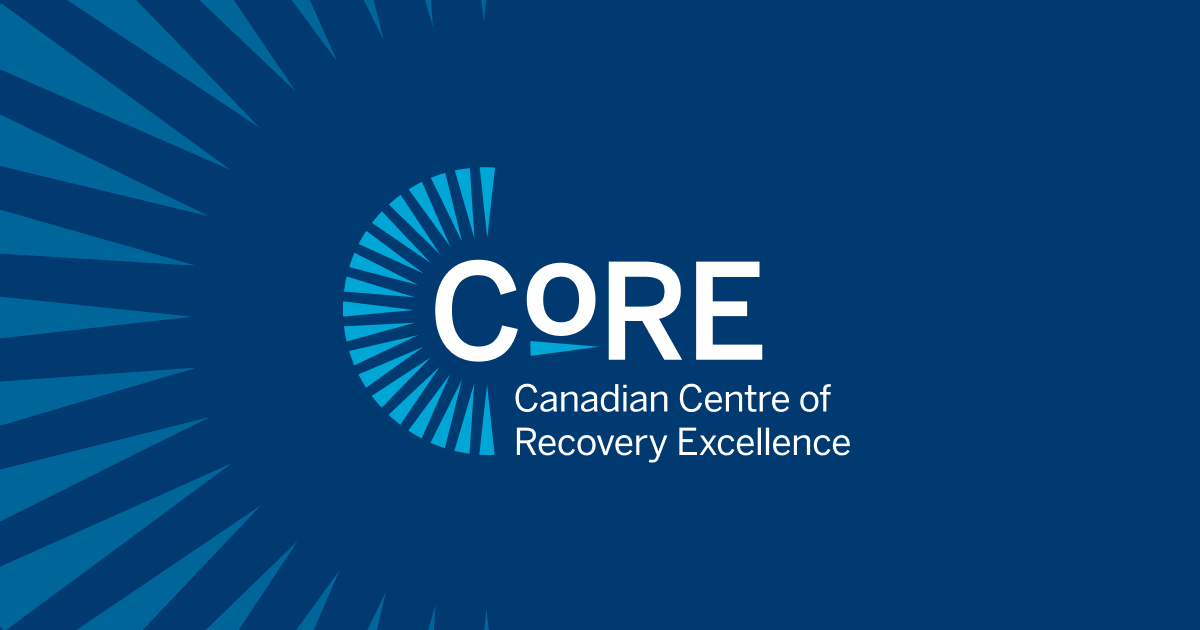CoRE Releases White Paper on Compassionate Intervention for Severe Addiction

FOR IMMEDIATE RELEASE
March 21, 2025
Calgary, Alberta – The Canadian Centre of Recovery Excellence (CoRE) has released a new white paper titled, Effective and Compassionate Intervention: Civil Commitment for Individuals with Severe Addiction in Alberta, Canada. This report explores how a best-in-class compassionate intervention model could be integrated into Alberta’s addiction treatment system, offering a structured, evidence-informed approach to supporting individuals with severe addiction.
The policy white paper was developed by CoRE following its creation in summer 2024, at the request of Alberta’s Ministry of Mental Health and Addiction. This initiative aligns with the Alberta government’s 2023 campaign commitment to introduce a made-in-Alberta Compassionate Intervention policy.
Key Findings & Recommendations
- The Need for Compassionate Intervention – Severe addiction can lead to grave risks for individuals and society, often preventing voluntary treatment engagement.
- Alberta’s Leadership Opportunity – Civil commitment models have not been rigorously evaluated on a global scale. Alberta has the opportunity to lead by implementing well-researched, proven treatments with a high-quality evaluation framework
- Effectiveness of Mandated Treatment Models – Structured, long-term treatment programs—as seen in safety-sensitive professions (e.g., pilots, physicians)—can significantly improve recovery outcomes.
- Comprehensive Approach Required – Longer inpatient stays, structured aftercare, evidence-based medications, and evidence-based psychotherapy are critical for success.
- Ethical & Legal Considerations – The policy requires clear legal frameworks, ethical oversight, and procedural fairness to ensure responsible implementation.
“People do not choose to suffer with addiction – our society has chosen to allow it. For our most ill, who lack capacity and are at serious risk of harm to themselves or others, compassionate intervention will help them far more than doing nothing,” said Dr. Rob Tanguay, an addiction psychiatrist, health policy consultant, clinical assistant professor at the University of Calgary, and founding board member of the Canadian Academy of Addiction Psychiatry.
Dr. Anees Bahji, an addiction psychiatrist and clinical assistant professor in the Department of Psychiatry at the University of Calgary, co-chair of the Addiction Psychiatry Section of the Canadian Psychiatric Association, and lead author of the 2023 Canadian Journal of Addiction review on involuntary treatment, stated: “This proposal is ambitious. Given existing evidence gaps, rigorous evaluation will be essential to assess its impact and effectiveness. Based on my experience reviewing the evidence on involuntary treatment, it is crucial that any implementation be guided by robust research and ethical considerations.”
This report examines the feasibility of implementing a best-in-class civil commitment model in Alberta. The analysis incorporates a systematic literature review of civil commitment programs in comparable jurisdictions, and insights from addiction treatment research and comparisons with mandated treatment models used in safety-sensitive occupations.
Next Steps & Policy Implications
CoRE is committed to collaborating with policymakers, researchers, and healthcare professionals to advance a world-leading Recovery-Oriented System of Care (ROSC). The white paper recommends a rigorous evaluation plan to ensure that any policy implementation is backed by scientific evidence and measurable outcomes.
CoRE encourages the Government of Alberta to incorporate proven elements from international models to build a world-class system for individuals facing severe addiction and associated risks.
The full white paper and supporting evidence is available for download here.
Share this Post